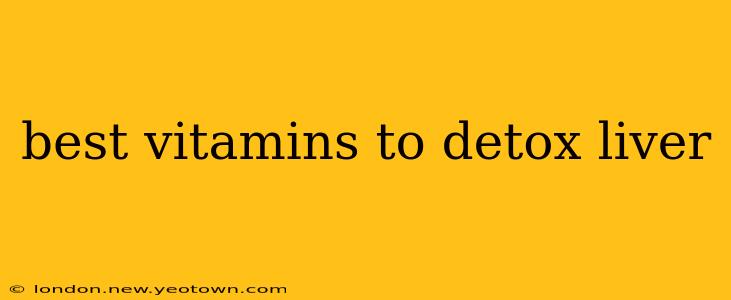The Best Vitamins to Support Liver Health: A Journey to Cellular Regeneration
Our livers, tireless workhorses, filter toxins, metabolize nutrients, and perform countless other vital functions. When they're burdened, we feel it – fatigue, digestive issues, and more. While there's no magic "liver detox" pill, certain vitamins can significantly support liver health and its natural detoxification processes. This isn't about a quick fix, but a holistic approach to nourishing your body's most important filter.
Think of your liver not as something needing a "detox," but as a vital organ needing consistent, gentle support. Just like a hardworking engine needs the right oil, your liver needs the right nutrients to function optimally.
This journey begins with understanding the key players in liver support.
What vitamins are good for liver health?
Several vitamins play crucial roles in maintaining liver health. Let's explore some of the most vital ones:
1. Vitamin C: This potent antioxidant is a frontline defender against oxidative stress, a major contributor to liver damage. Oxidative stress occurs when there's an imbalance between free radical production and antioxidant defenses. Vitamin C helps neutralize those harmful free radicals, protecting liver cells from damage. Picture it as a tiny superhero, swooping in to disarm harmful molecules before they can harm liver cells.
2. Vitamin E: Another powerful antioxidant, Vitamin E protects liver cell membranes from damage caused by free radicals and toxins. It works synergistically with vitamin C, creating a robust defense system for your liver's cellular structures. Think of it as a sturdy shield, bolstering the protection offered by Vitamin C.
3. B Vitamins (especially B6, B9, and B12): These vitamins are essential for numerous metabolic processes, including the liver's role in breaking down toxins. B6, folate (B9), and B12 contribute to the synthesis of various enzymes involved in these processes. They're like the skilled technicians in the liver's repair shop, ensuring everything runs smoothly.
4. Vitamin A (in its carotenoid forms): While excess Vitamin A can be harmful to the liver, the carotenoids beta-carotene and other forms found in plant-based foods are converted to vitamin A as needed by the body, providing a safer approach. These carotenoids also possess powerful antioxidant properties, supporting liver health. This is like having a smart delivery system, providing Vitamin A only as needed and simultaneously delivering additional antioxidant support.
Can vitamins help repair a damaged liver?
While vitamins can’t magically repair severe liver damage, they’re crucial in supporting the liver's natural repair mechanisms. Think of them as construction workers diligently repairing minor damages and reinforcing the infrastructure, preventing further problems. However, severe liver damage necessitates medical attention. Vitamins are supportive, not a replacement for professional medical care.
What are the best foods to eat for liver health?
Consuming a diet rich in these vitamins is the most effective way to support your liver. Leafy greens, citrus fruits, nuts, seeds, and colorful vegetables are all excellent sources of these vital nutrients. A well-balanced diet is the cornerstone of liver health.
What are some common causes of liver damage?
Several factors can contribute to liver damage, including excessive alcohol consumption, certain medications, viral infections (like hepatitis), and fatty liver disease. Living a healthy lifestyle, minimizing alcohol intake, and avoiding unnecessary medications are crucial preventative measures.
Are there any supplements specifically designed to support liver health?
Many liver support supplements exist, often combining several of the vitamins mentioned above with other beneficial substances like milk thistle. However, always consult a healthcare professional before starting any supplement regimen, as interactions with existing medications are possible.
Disclaimer: This information is for educational purposes only and does not constitute medical advice. Always consult with a qualified healthcare professional before making any decisions related to your health or treatment. The information provided here is not a substitute for professional medical advice, diagnosis, or treatment. Always seek the advice of your physician or other qualified health provider with any questions you may have regarding a medical condition. Never disregard professional medical advice or delay in seeking it because of something you have read online.

